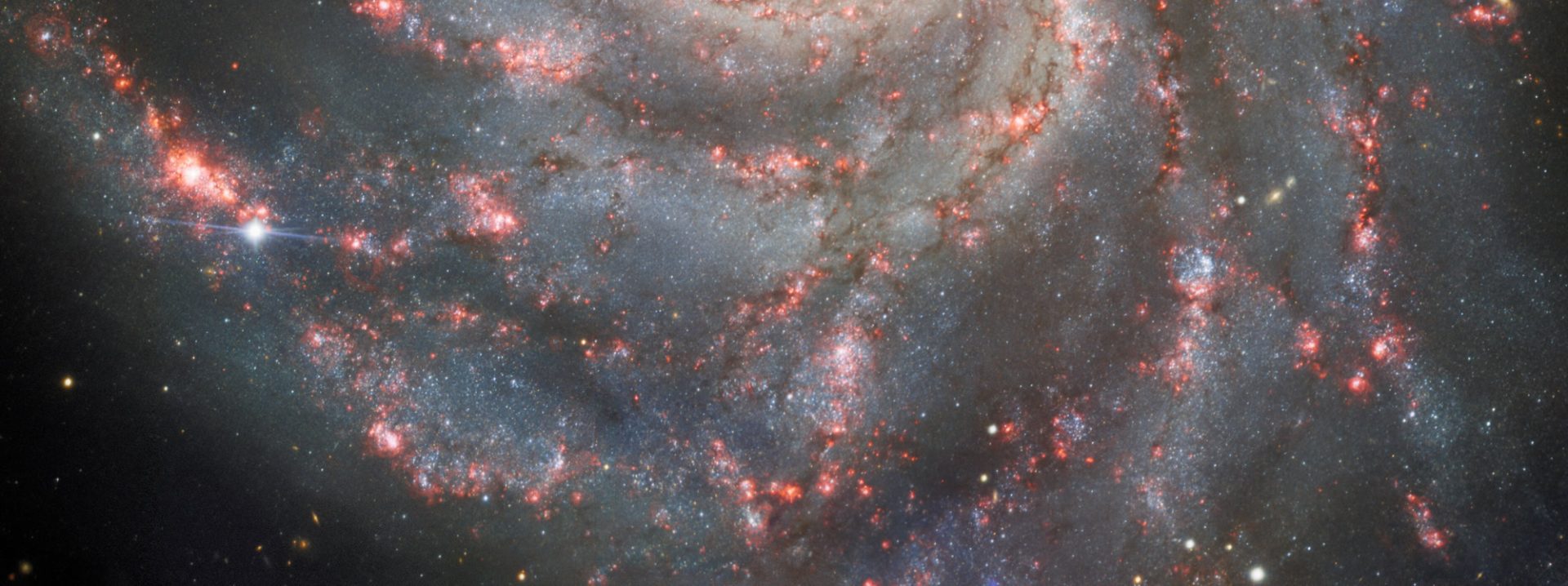阮建高在12月15日晚,在SNSP适时搜索中,在M31发现一个可疑目标,后经过补拍验证,认为是新星可疑目标,测量后上报。
CBET确认为 Nova M31 2010-12c,这还是一颗再发新星,这是星明天文台发现的第三颗河外新星。
POSSIBLE NOVA IN M31
Jiangao Ruan(Fangchenggang, Guangxi, China) and Xing Gao (Urumqi, Xinjiang, China),report the discovery of a possible nova (mag approximately 17.2) on several 60-s survey images (limiting mag about 19.0) taken by Xing Gao in Xingming Observatory Sky Survey(C42) around Dec. 15.52764 UT using a unfilled CCD ( + Celestron C14 Schmidt-Cassegrain telescope D=356-mm @f/6.9 ). the new object approximately located at R.A.=00h42m56s.66 Decl.=+41°17’21”.3 (equinox 2000.0). Which is about 139″ east and 73″ north of center of the NGC224.Nothing is visible at this position on archival images taken on Dec. 13 (limiting mag 19.0) and Dec. 14 (limiting mag 19.0) or on the DSS(IIIaJ + GG495) from 1985 Dev.17.
All images can be seen from: http://www.xjltp.com/XOSS/XM08JR/XM08JR.htm
USNO-A2.0
XM08JR C2010 12 15.52764 00 42 56.66 +41 17 21.3 17.2 V C42
—– end —–
C42 Xingming Observatory, Mt. Nanshan. Observers J.Ruan,X.Gao ,Measurers J.Ruan. 0.36-m f/6.9 Schmidt-Cassegrain telescope and CCD.
APPARENT NOVA IN M31
Jiangao Ruan, Fangchenggang, Guangxi, China; and Xing Gao, Urumqi,
Xinjiang, China, report the discovery of a possible nova (mag approximately
17.2) on one 60-s unfiltered CCD survey image (limiting mag about 19.0) taken
by Xing Gao in the course of the Xingming Observatory Sky Survey at Mt.
Nanshan around Dec. 15.528 UT using a Celestron C14 35.6-cm f/6.9 Schmidt-
Cassegrain telescope. The new object is approximately located at R.A. =
0h42m56s.67 +/- 0s.01, Decl. = +41d17’21”.2 +/- 0″.1 (equinox 2000.0), which
is about 139″ east and 73″ north of the center of NGC 224. Additional
Xingming magnitudes for the variable: Dec. 13, [19.0; 14, [19.0; 16.517,
17.1; 16.518, 17.0. Nothing is visible at this position on a Digitized Sky
Survey image (from a IIIa-J plate + GG495 filter) taken on 1985 Dec. 17.
The Xingming images have been posted at the following website URL:
http://www.xjltp.com/XOSS/XM08JR/XM08JR.htm.
Kamil Hornoch and Adrian Galad, Astronomical Institute, Ondrejov, report
their independent discovery of the above variable in M31 on a co-added 2340-s
R-band CCD frame taken under poor conditions on Dec. 16.729 UT with the 0.65-m
telescope at Ondrejov. The new object is well visible on single images used
for the co-added frame and is located at R.A. = 0h42m56s.67, Decl. =
+41o17’21”.3 (equinox 2000.0), which is 139″ east and 73″ north of the center
of M31. The measured position is only about 0″.7 from the best position for
the “Fe II”-class nova M31N 2010-01a (cf. CBETs 2124, 2127, 2136, 2187) that
was measured by Hornoch from the 2.4-m Hiltner telescope image taken by J.
Prieto and R. Khan on 2010 Jan. 13.110 UT, which suggests that the currently
detected bright object could be caused by another outburst of M31N 2010-01a.
Available R-band magnitudes for the variable during its current outburst,
measured by Hornoch: Dec. 4.211 UT, [21.7 (P. Garnavich and J. Pagnini,
1.83-m Vatican Advanced Technology Telescope + Vatt4k imager); 13.930, [18.5
(Hornoch, 0.65-m telescope at Ondrejov); 16.729, R = 16.5 +/- 0.1 (Hornoch
and Galad, 0.65-m telescope at Ondrejov).
Following a request from Kabashima and Nishiyama, T. Yusa (Osaki, Japan)
writes that he has confirmed the appearance of the above variable at mag 16.4
on 90-s unfiltered CCD exposures (limiting mag 18.5) taken on Dec. 17.392 UT
using a 0.30-m f/7 Cassegrain telescope (+ SBIG STL-1001E camera); he measured
position end figures 56s.64, 21″.3 for the variable, and his image is posted
at URL http://www.palette.furukawa.miyagi.jp/space/images/PNinM31_101217.jpg.
